Kate Bowler: Oh, hello, I’m Kate Bowler. And this is Everything Happens. And today is a really special episode. It is a crossover with my dear friend Kelly Corrigan and her podcast, Kelly Corrigan Wonders. Kelly is the author of bestselling books like “Tell Me More”. She’s the host of a show on PBS also called Tell me More. And she’s just one of the funniest, most honest people that you’ll meet. And she is exactly who you want to tell about your beautiful and often boring and sometimes wildly unglamorous days. And we thought it might be a nice time, especially this time of year, when there is an enormous temptation to say that everything is wonderful, when in reality things can be a bit rough. I think as we just chug through December and push toward New Year, we somehow feel like we’re supposed to wrap it up, feel finished, look backward on 2022, just beaming with pride and delight. We all feel that New Year, New You Pathology. But it might actually be a little healthier, she said bossily, to just take stock of the things that weren’t as lovely. Look back on a year that may have, I don’t know, sucked. So rather than just showing you the shiny parts of life, today is your absolute permission slip to say three cheers to the crappies. Or at least here are the crappies. Kelly and I are going to exchange our crappiest moments and we’re going to talk about the crappy in our personal lives, in our inner circle, during our 9 to 5, we just did like a little zinger, like a bonus round the crappy that that took the cake. That’s a that’s a horrible mixed metaphor. And I’m already sorry I said it. But this episode is for you. If you aren’t feeling decidedly warm and fuzzy about this past year and you just need a minute to say, wow, that really didn’t go well, or this isn’t always getting better, or I’m really disappointed, or heartbroken, or hurt still. So here’s to a moment of honesty. Very crappy honesty, my dears. And just as a reminder, you, in all of your hopes and problems and unmet expectations and the things in your life that were fixed and the ones that just can’t be. All of it is worth listening to. So thanks for tuning into this one. This is going to be fun. Or not? I guess.
Kelly Corrigan: Kate Bowler for the crappy files. What is your personal low?
Kate: Oh, I’m coming in hot. I mean, I’m, I’m coming in fresh. I just drove here to the studio from the hospital where I am absolutely unable to manage my chronic pain. And it turns out so are they. So I have an outfit that I wear on my hospital days where I auditioned for the part of somebody who’s pain will be taken seriously. It’s always like soft pants and some kind of collegiate sweatshirt, as if to suggest I’m a reliable narrator. But I have debilitating chronic pain. For the last seven weeks, I have not been able to get it under control, and I am on the peak amount of medication I can be on. And then you start hoping for the the sort of magical Dr. Figure to sweep into the room and have some new ideas. But at this point, I have a strong cry first thing in the morning in the privacy of my closet. And then I face the day. And then I float in the bath at night because I can’t. Because my joints just won’t keep it together. And then the rest of the time, I am myself. But holy crap, Kelly, lately I’m just not able to fix my life.
Kelly: Yeah. And it’s all in your joints, or is there even more beyond that?
Kate: Yeah, it’s I mean, the cancer stuff’s going pretty well right now. It’s I just have these bonus features, which is that my joints are too lax so they don’t hold together quite right. And so if they slip out of joint, which they do often. And the other day my, one of my ribs popped out and I was like bleh, well, that’s not going to work. So to find someone to like mash it back in. Which is how I describe most of this, is just kind of a feeling like mash, mash, mash, mash.
Kelly: When your rib popped out, like could could you see it from the outside? Like, could you see a bump?
Kate: No, I just could feel it in the back. So I’m like a mostly like a very poorly assembled Mr. Potato Head.
Kelly: Like sometimes you fall over, right?
Kate: That’s right. Yes. But I have big googly eyes that are pretty happy to be anywhere. So, yeah, it’s the perpetuity of it. And I think that the mind bending part is that every day is new and every part of the problem is new. So even if it feels familiar, the smell of the hospital, the stickiness under the floors, the lighting, the intake interview, I just have to tell myself over and over again, this isn’t cancer. This is something totally different. But you’re on this full repeat where life keeps going. But it’s you have to remember it’s a spiral and not a circle, you know, but you feel like you’ve come back to the same point over and over again. But nope, it’s new and you actually don’t know what’s going to happen, even though everything in my body is creating a lot of predictive authority.
Kelly: Yeah. And it’s kind of crushing to come face to face with how much doctors don’t know and can’t do. Yeah. Like to be in that territory where people are kind of like, you know, with that face, that’s like. Yeah. Like that strange.
Kate: Yeah.
Kelly: Accepting the truth of it. And then doing that grim shrug. That’s like, I hate to be the person to tell you this, but we don’t know why this is happening or what to do about it.
Kate: No, no. This is like a managing symptoms kind of place and not a solutions kind of place. It was so funny, though. In the hallway they had this big gratitude wall where patients were writing things that they were grateful for. And you know that I have a strong policy against gratitude. Because I think the gratitude is something we do to the suffering. It’s like it’s the shellac they have to put over the pain to make it more bearable for us. But this gratitude wall had some bits that were really sweet and dark where people were mostly just saying. I mean, a lot of it was like, Oh my gosh, I’m so glad that surgery went so well, thank you to Doctor so-and-so. But one of them was. I never thought I would survive at all after I found my 18 year old dead. And now here I am. I think they were just saying, Oh, look, another day. Mm hmm. And that, to me, was such an intense kind of gratitude that I thought, bravo you for putting that on the gratitude wall next to the butterfly sticker. Yeah. Proud. Proud.
Kelly: Yeah. Yeah. You know. The only pain I really know, the only physical pain I really know that is even in the realm of what you’re experiencing, is migraines. So I’ve had a couple 72 hour headaches, 18 pill headaches, you know, and for me, there’s this super intense internal conversation going on where I’m I totally believe, or I totally want to believe, which means maybe I don’t totally believe. But like I totally want to believe in almost do believe that the mind can do great and horrible things to the body. And so if you want to believe that or kind of believe that, or are striving to believe that, then when you’re in the middle of a migraine, which is another shruggable diagnosis, like we don’t know. We don’t know why they happened. We don’t know really why they go away. You can try this, that and the other thing. You have either the pressure or the opportunity, depending what mood your in, to to try to sort of think your way out of it, you know, to to go places and do these bizarre mental exercises. Like a thing I do in my head that I’ve never said out loud, not even told Edward. Not that it’s that crazy, but it’s just odd. But it’s the kind of thing that pain. It’s kind of conversation pain starts with you is there’s a little man inside my head and he has a broom and he’s like gently sweeping up these little fragments of pain. And I just try to focus on the little man who’s, like, doing his work. And I think it’s like after I take a Sumatriptan, which is the strongest medicine I have for migraines, then I do my little man routine and I just try to picture him, like moving it along long enough so that I can sleep. Because what I’m really dreaming of is to be unconscious.
Kate: Yes, that’s right. Yes.
Kelly: Do you do any crazy shit in your head?
Kate: Well, that was a perfect image because something you said to me the other day, which I have held onto, was because, you know, I’ve been dealing with this for a bit and I want so much to absolve the people I’m talking to for the terrible feeling it creates when I describe, Oh, My life is physically is this is unbearable right now. You said very nicely. I don’t worry so much about cleaning up after yourself. Like when you say something like that. And I, I thought that was so good. Like, let’s not. Let’s not tidy it up so fast. And then for you to have that person inside that can just do the slow work for you without you feeling quite so much pressure to to clean it up for everyone else, I thought that’s that’s perfect.
Kelly: Well, that’s that’s a lonely making thing about pain, too, is that you’re pretty sure, like, no one really knows what to say about it. And you’re pretty sure that the people nearest and dearest to you, I mean, you you are sure because you know, because you’ve been on the other side of it that like all they want is some signal from you that it’s changing slightly for the better. And so to say to somebody who loves you, no change or getting worse is almost you almost feel like you’re like stabbing them in the heart. And my crappy is related to this, which is that I have been caught off guard a few times by my kids, who I was bouncing around the world thinking that they were killing it. And they were really more being killed. And I asked one of them, and in this moment of honesty, do you sometimes tell me good things so that I won’t worry? And they said, Of course. And I was like, shit. And they said, yes, because you internalize things. And I said, right, but I can grow, I can change. I can be better. Like, I know I do. And, you know, that’s that’s what love is at some level, right? Is that this kind of vein to vein transfusion that’s happening? But, like, I can be better for you. I can handle it. Like, if it could help you for you to unload more frequently or more honestly or more thoroughly. Then I want you to do that.
Kate: Mm hmm.
Kelly: But when you’re in a very unguarded relationship, which I am and which I know you are with your people. You know that they’re carrying this and that you’ve made it bigger by sharing it. You know what I mean? And then and that’s why you feel like if you run around and be like cute Kate Bowler with the big dimples making the funny one liners. And that’s, it’s just a fact to be acknowledged there’s nothing to be done about it but it’s it is this pressure to be like I love you too much to just let this be shitty for you. Like I just told you something really hard and unsolvable. And now I’m going to give you a little zinger so that you feel better hanging up the phone. You know?
Kate: Absolutely. You see into my very soul. Yeah, I had a doctor’s appointment yesterday with someone totally new, and he did this really painful thing. And then I go, I love you, Byron. I love you, Byron. I sounded like a like a tranq bear. I’m just about to go down. I was like, I love you, Byron. But it is I couldn’t not give him something back after helping me.
Kelly: Because you’re worried to death about him. Because as Lisa Feldman bear, my neuroscientist friend is says, like, the best thing for a human central nervous system is another human, central nervous system. And the worst thing for human central nervous system is another human central nervous system, which is to say, like stress is contagious, calm is contagious, well-being is contagious. Like everything, we’re sharing it all the time in all these different ways with one another. And so what do you do with pain, unsolvable pain of whatever type, like your kids sad, or your friend’s joints are giving out on her, and she’s like falling down in the hall. I can tell you how many times I pictured you falling down in the hall. Like that, just like, oh, it’s so specific. And it’s I think it’s good and important for you to share it. Like, I think you’re setting other people free to be specific about it and to let me picture you falling down in the hall like I want to. I wanna. I wanna to have more of you in my heart.
Kate: Oh, my gosh. What amazing thing to say. Ugh, Kelly. Well, that’s so Good. That’s so nice.
Kelly: Because partially it’s sort of related to my crappy which is it’s a very weird feeling, very weird feeling and and more unsettling than the unsettling feeling of loving someone who has a problem you can’t fix. It’s more unsettling to think, I don’t even know what’s going on with someone. Like for me to have jumped on the phone with you and had a quick conversation and like, yickidy yackety, and like I’m being Kelly Corrigan and you being Kate Bowler and we’re is just like being up together and then hang-up and find out two days later that you’ve been in pain for eight weeks. Like that would feel more unsettling than just the regular hard truth that there’s tons and tons and tons of pain that cannot be fixed by love.
Kate: Yes. I started to develop a theory, though, about like the people who love us best that their love does make it unbearable for them to hear. So I did really lie to a lot of people for sicker, the sicker I got and just to manage them, managing their love. And it has been kind of a hard habit to unlearn, especially to if you’ve got, you know, most people have like a, like a real grab bag of problems. Just kind of a reverse Mary Poppins situation where it’s not like a big plant that’ll come out of that bag or medicine. It’s just like, oh arthritis and then estrangement from a loved one and then work alienation or something. So I do find that the multiple kinds of problems. Also sometimes make us lie because if you have one big problem, it sort of feels like synthetically everyone. It’s like a it’s like a planet with too much gravitational pull. It runs like, oh, it’s cancer. You’re like. Oh, no, I got this other crappy problem. Right. Totally unrelated. So I imagine people going,
Kelly: Can’t get my printer to work.
Kate: How dare you have multiple layers of kinds of problems, right?
Kelly: Well, that’s the fingernail problem. Yeah. The long time ago I talked to Jia Tolentino, who wrote Trick Mirror, and she writes for The New Yorker and she was on the pod. And we were talking about like the hangnail issue, which is that like the world could be burning and Ukraine could be at war, there could be shooters on campuses, but still, if you have a hangnail, your entire consciousness is sucked into this tiny, utterly trivial issue. But I think, weirdly, there’s something sort of promising or instructive about that, which is to say that it’s a clue to mindfulness. Which is if your consciousness could, without your permission, get sucked into your hangnail, then with some guidance, could your consciousness be pointed somewhere else so that you might have like a moment of relief from the ongoing truths of the world?
Kate: Yes, I like that. That’s a lemon juice problem. That’s very interesting. It is weirdly hopeful, too that the body is like AHHH, like at all because, I mean. Otherwise our particular problems would just be constantly drowned out. And then we’re always getting pulled back into our own stupid, wonderful bodies and lives where there’s minor inconveniences that remind us that, you know, we need water and, you know there’s always a meal. I always find that so funny. It’s like lily pads. The worse things get for me sometimes the faster I go for a really good reason. Like if I stay still for too long, I might sink. Like, I’ll pay too much attention to this pain. The walls will close and it’ll feel overwhelming. But then if I just kind of hop on to the next lily pad, which was never meant to hold up my full weight, and then the next one, then there I am, kind of like skimming above the surface of the water, and then the day is more bearable because there’s always something really beautiful. I mean, terrible and stupid. But really beautiful in every day that does kind of give us that buoyancy. And then and then we’re off. But yeah, I find staying too much in the past or the present or the future is always very dangerous. You got to kind of mix it up, otherwise it’s the worst.
Kelly: That’s interesting because it’s so popular to say that like the present is all we have and this is where you need to focus all your energy and you know.
Kate: To me It’s terrible. Don’t. Don’t stay in the present for tolong. The present is trying to murder you sometimes. Yeah.
Kelly: Another thought I’ve been having lately, which I’ve never had before, is that sometimes forclosing all discussion and completely diverting your attention is wise and effective.
Kate: Give me an example. I really like that.
Kelly: Oh, you know, like if you’re talking to a friend who’s going through a divorce, like she may be trying hard to spend four or five days, like, without thinking about it. Give yourself a break from thinking about it. And I’ve had that when I’m worrying about something and I’ll say to Edward, Let’s talk about this on Friday. Let’s just go, let’s just go for five days and just be in our lives. But our thinking about it will not enhance the outcome in any way. So let’s just meet again on this topic on Friday and give ourselves five days to to think about other things.
Kate: That’s so good. I completely agree. I was just spinning about this pain problem because I thought every choice I made. Well, what if I, you know, I’m just buzzing about the relationship between the level of pain I’m in and and every, every choice, every meeting, every I’m like I hurting myself. Am I just trying to figure out, like, what is my relationship with this problem? And I called a friend Haider Warraich, who is a friend from the podcast, and he wrote a gorgeous book called The Song of Our Scars. And he has this wonderful thing that I think you will love, Kellly, because he was describing like, the intensity of the problem, the real thing, the kind of or source problem which he describes as clean pain, like the fact that cannot be denied. So maybe the thing that you don’t necessarily want to talk about anymore, because there it is. And then all the feelings about the feelings and all the spinning and all that, etc., as which creates its own effects in our body. Not just anxiety, but like prickly nerve pain over anticipation, sleeplessness, like all the secondary thoughts, stuff as dirty pain. And he was like, Kate, we are going to talk about your clean pain and we are going to make a series of decisions and then we’re going to put a time on the calendar in a couple of weeks, and then we will revisit it. And I bet you anything the dirty pain will go down. And he was totally right. So I can see how like psychologically, if you want to I mean, I used to do that all the time with cancer scans is like and this is a decision I made on a Tuesday at 8 a.m. and I will revisit that again at so-and-so a date just imagining our life, our worries as calendared. It restores to us, I think, the ability to let any other problem, any other joy or concern kind of take up the real estate needs.
Kelly: Yeah.
Kate: Like we give ourselves we literally give ourselves a break.
Kelly: Right. As my friend Mary Curtis Mead it to say, college, slam it in a drawer and get over it. She would, she woulld say it all the it all the time. And in my, you know, northern girl, like overly interested in the social sciences kid that I was I was like, that’s going to bite you in the ass, Mary Curtis Mead. But the truth is, sometimes you can slam it in a drawer and get over it just for a minute. It’s going to come back. It will win. It will resume its place in your consciousness, but you’re allowed to say, we’re going to take two day’s off. What’s your crappy of your inner circle?
Kelly: Well, it’s kind of one of those pandemic hangovers, which was that for a lot of this last year, every thing sort of kept kind of being reknitted and unraveled. It’s like you’re wearing a sweater and then someone pulls a thread and you’re not wearing a sweater anymore. You’re just frantically trying to reknit it. And my best friend from Winnipeg, Manitoba, Chelsea, was just she was coming up on a big birthday. And she was just so decidedly meh about it. She’d had a series of losses all in a row, and there didn’t seem to be a way to. I think we realized this, that we didn’t really have any way to keep time anymore. Like even just saying this was good, this was bad, this was hard, this was a delight. Everything was just sort of covered in a blanket of meh. So I kind of agreed, like, what a weird few years that ran together in this gray soup. So we did something that I really liked that I kind of want to do forever and ever and ever, which is and we’re, you know, miles, miles apart. But we decided then to market with a series of thematic cocktails of like just of all the terrible, stupid and wonderful, but just to declare what it was. So, like, she just graduated with her Ph.D. and it was a long, hard slog, but holy crap, she did it. So we labeled that one with a lot of gin, like Chelsea’s Commencement. And then we made a strong, like, trying to get any kind of momentum and any kind of, like, vista feeling that was totally aspirational because it hasn’t come true. And we call that A Realm of One’s Own. And that one was just as. But I, that to me was a solid response to the inherent mehness of this year is like we’ve got ourselves a timekeeping problem. What was yours? What was your what was your blah or bad inner circle?
Kelly: Of course, I have a lot of friends who are losing their parents. My friend Melissa just lost her dad. My friend Michael Kelly lost his dad. Yeah, but I, I it’s the divorce that’s killing me because, like, I’m a grownup, and, you know, you know, everybody knows the odds, but I can’t tell you how surprised I am about who it is and what the circumstances around it are and what the consequences have been. Like we’re all kind of flippant and and have totally normalized like 50% of marriage blah, blah, blah. But it’s like each time, it’s like a total ordeal and, and the thing that it gets at that I really don’t like. The like that I hate the most is that it’s very hard to know people. Like the first the first two great friends of mine who got divorced maybe ten years ago. I thought their husbands were, you know, like gold, solid gold, 24 carat all the way through. And they both had done horrible things, really horrible things. And while we knew them, you know, like they were leading these double lives, like right while we were having cocktails and going on couples weekends and swimming in the lake together like it was all so and and that’s just my tiny access point to like, it was all a lie. But to have been around people and kind of fallen for them and admired them and sung their praises. And then to find out that they’re liars, just just total liars. And again, it’s that same thing about unsettling, like your set. And it’s sort of like you’re raveling and unraveling, like, settled and unsettled. Like, it’s nice to settle. It’s nice to decide something. He’s a wonderful guy. They’re a terrific couple. Yeah. You know what? A great friend.
Kate: Yeah.
Kelly: And then to have that unravel, is this the same sort of feeling as this pandemic that’s like, are you even allowed to say or think it’s over? Because more and more lately, I’m just seeing masks everywhere. And I just went to a show and you had to mask in the audience. And just the sight of it, I was like, Oh, God. I mean, I’m sure it’s smart. I’m sure we’re saving each other, even just regular street colds by doing that. But there is something. Yes. About having the sweater pulled off you line by line when you thought you were all set and cozy in your little and your new wool sweater.
Kate: Exactly.
Kelly: I mean, I was I was a crazy person after those first two with all the betrayal like Edward will tell you, like that, I was like, what are you doing? Who are you texting? And he was.
Kate: Is like, nobody good?
Kelly: Kelly, Kelly, stop it. And I was like, I’m just saying, like, we loved him. We thought he was so great.
Kate: Yeah. Yeah.
Kelly: So now I will say, uh, there is tremendous growth. Like in both those cases, both those women are completely thriving. Like it was a it was hell on earth, you know, it was a thousand days of hell. But they both are really flourishing and.
Kate: Is it amazing to watch someone transform. I feel so awed by it when I see it. Like like I just watched a rocky montage. And I know the friends only get the montage feeling because we’re not, you know, they’re in every shower cry or sleepless night. But like, man, when you see a friend bounce back in any way, there’s any bounce at all. When who could be a Tigger in a world like this. It’s just wild.
Kelly: Yeah. And that’s that’s really the thing to attach to. If you’re feeling like you’re going to internalize the whole thing, don’t forget to internalize the bounce. Like there’s the loss, there’s the grief, there’s the bounce. Yeah, and it does happen. I mean, people, you know, stunning. More stunning even than the crash is the rise. Did we just make that into lemonade too much?
Kate: No. Only because the hard part about talking about pain and I find this every little day of my life is that in there somewhere is always this glittering gem. And then the rest of it is an absolute tar pit of sorrow and despair. But both are always, both are always true.
Kelly: Mm hmm.
Kate: So, like this. I love being the person who knows. You know, like, whoever that sweet little dumb dumb was that I was before cancer. I mean, bless her. She didn’t know this. I Do kind of prefer this version with a super healthy body would be great.
Kelly: Mm hmm. What’s your 9 to 5 crappy?
Kate: This year, I had my terrible sorrow of my very best work friend, work marriage, love of my life, Jessica Richie, moved away, and that was awful. It was losing the, like, pop-in feeling the hey, what do you want for lunch? Why do we both hate olives? You know, just the, like, rambliness of that kind of love. And especially with friends, where there’s so little language for friendship, and you’re like, Oh, no, no. I am so madly, deeply in love with you that everything you do, even your problems I find adorable, just adorable all day long. And you’re the only person I really want to fight with all day. I thought it was my marriage. But now it’s you, Jessica. I want to fight with you all day because work is so fun and so much more fun when you just spend all of it creating problems because you came up with a work project that was sustainable and then managing that passion and then trying to make it launch and then mitigating disaster. But you don’t really care because you’re, you know, you’re on Everest and you’re hiking above the oxygen kind of line, but that person is always oxygen. It was that feeling. And I thought, I will never. I mean, we still work together every single minute of every day. But I don’t get to wander in and force a pandemic haircut on her, which I then do, which I take scissors out. Like it’s that kind of relationship and I was like, Nope, that’s it. I’ll never love again. So that’s I, I cried about that probably more than any other quantifiable problem had in years and years. And there are bits of it that felt manageable. Like this move is really good for her. Actually. It turns out that she’s in love and is going to get married to some amazing person who just doesn’t live here. And now I can feel intense happiness, but like she’s the reason for so much bravery in my life. And so you just got to like like treasuring that stuff and simultaneously mourning it is kind of a, kind of a double whammy.
Kelly: How does she make you brave?
Kate: Well, I’m an anxious person because I’m always anticipating and she’s a she’s like a giant, beautiful shrug and she’s like, yeah, it’ll be fine. And and the combination of that means I always think big after I’ve talked to her, like, oh, we could do anything. I mean, there’s the Dalai Lama free, you know. Because we got it, we got five great ideas and I, I don’t have anybody else where I’m not usually like the, the waltz leader. You know, I am I like having someone around who’s kind, and smart, and I’ll go wherever she leads. It’s a wonderful feeling. And you earn it after. I mean, we met in a Myrtle Beach convention center. Now, who else has an origin story like that? No. She was selling merchandise behind a table, and I was interviewing celebrity ladies for an academic book called “Preacher’s Wives”. And, and there it was. And I was like, you, you seem really smart. You should come to this program. And then she was like, you should probably learn about, I don’t know, running a business. Then together our hearts were one.
Kelly: That’s what I miss about my dad the most. He was like, Lovey, great. I mean, anything I brought to him, he’d be like, Lovey, that’s fantastic. That’d be amazing. You know, like he thought the distance between where I was and anywhere I might want to go was about two steps. You know, the stand-up, you’re halfway there. I mean, insane guy.
Kate: Oh my gosh
Kelly: And you don’t believe it when you’re young. You think your parents are just, like, blowing this sort of generic love into you? But as you get older, you think, like, God, he really. Either he saw something in me or he or he put something in me. I don’t know which was.
Kate: Oh my gosh Kelly, what a perfect thing to say.
Kelly: But, you know, it was like, I called face a love, like, every time you pitch him something. Here’s what I think I’m going to do. He’d be like, God, I love it. Like, this is a huge face. Like, you know, someone just fell out of a cake with a hundred candles like Lovey. I do. I do think that for people who are thinking about small businesses and launching things, that if you can find the right partner, I also have the right partner in Tammy, who is the producer on this pod. A lot of things become possible. A lot.
Kate: Yeah.
Kelly: And the whole thing becomes so much more fun. That’s like nothing. It would be it would be as tenth as satisfying or rewarding. It really would. I would feel like, for instance, the other night after I did that interview with Kate Beyer, the poet in Brooklyn, where everybody was masked, these women came up after and they’re like, Oh, my god we listen to your pod, we share it everday, we talk about it. You’re like in my ear, I can’t believe I’m talking to you. And all I thought was, Tammy should be here. She should be hearing this. I really want her to hear this. I really wanted her to feel what I’m feeling right now so that she can feel as gratified as I feel. So, yeah, I can imagine. I can imagine you losing your gal day to day.
Kate: Oh, my gosh. I like to take a picture where we I have a montage with Jessica Richie that is better than any marital montage I could ever imagine. And because she’s been my medical emergency contact. She’s been personnel work with in a in an airplane, personell work with on a. So if you see this like this tick of all the places. It’s like the feeling where wherever you go, there’s a trapdoor to somewhere else. Yeah. You know, so wherever we are, we can just, like, scoot through the door and then. And then. Ta da. And then we’re having a fun idea, and then we’re trying to put it in a Google doc called No New Ideas to try to talk ourselves out of having that idea. But it’s too late.
Kelly: My my crappy is that I had the worst business meeting of my entire life this year.
Kate: Oh No,.
Kelly: It was brutal. First, I screwed up in the beginning and I didn’t understand what this woman did. So I asked her the wrong question off the bat, and I don’t know if that was it, but then things started to take this terrible nosedive. I was not prepared. I didn’t totally understand the context of the meeting. So I was going in for like a meet and greet and like, hey, let’s get to know each other a little bit and see what you know. And two meetings from now, we can talk about the kinds of things that you just started talking about that I don’t have in front of me. Like I did not have the deck in front of me of like, this is your viewers, this is your demo, this is your trending, this is your online. Oh, my God. I was so, I was so alone. And I, I just went in by myself, and there were three of them. And, holy smokes, it was the worst meeting of my life by, like, a factor of ten. I don’t feel like I’ve ever been that thrown from the jump.
Kate: Right?
Kelly: Like, I think my face was red. I was hitting out like pitting out. i I just, you know, I, I like a meeting generally because I’m an extrovert, so I just assume that, like, everyone’s going to love each other and we’re going to problem solve together and it’s going to feel good for everyone. And all this going to be this all this collaborative energy. And like we’re going to walk out of here with a list of to do’s and wooo! It’s Like, you know, it’s it’s like a totally energizing generally a totally energizing experience for me. And man, I just got smaller and smaller and smaller. And then at one point during the meeting, I was like, do not cry. You can not cry in this meeting. You are a 55 year old woman, like, get it together, Corrigan. And that’s all I was thinking about is like, you cannot let, like, some little, you know, tear go down. You like. Yes. Oh, I mean, that’s how bad it was. And I left and and one of the women was like, I hope you’re not discouraged. And I was like, Oh, My God, I’m literally not going to say a word for a week. Like it’s going to take me seven days to open my mouth. And I went to some restaurant and I ordered a huge cheeseburger and fries, and I sat by myself staring at like the happy, well-adjusted people around me who were having successful lives.
Kate: Monsters absolute monsters.
Kelly: I just ate myself into a stupor. And I didn’t call anybody or like they’re all these people knew I was having this meeting and they’re ready and saying how’d it go? How did it go? And and we’re all so stupidly optimistic. Like we thought this was the beginning of a whole new world for us. And, you know, people said, do you want me to go with you? And I was like, No, it’s going to be great. You know, it’s going to be like, Oh, my God. So I didn’t call anybody for an hour. I mowed my food.
Kate: No, the first stage is carbs. I mean, the first stage is just salty fat because your body in freefall is like, I don’t know if I’ll ever be safe again.
Kelly: That’s right.
Kate: But this will help me know.
Kelly: This willl be my last meal for sure.
Kate: Oh, you’re fully last suppering it. Absolutely
Kelly: But the interesting thing is then whatever the first phone call is like, whoever you admit, this complete defeat to. How you frame it is like how you’re going to frame it. And that’s right. It’s just such an interesting and important choice that I’m now aware of that I haven’t always been aware of in my life, where it’s like either I’m going to say they ganged up on me and it wasn’t fair and I’m going to make everyone I tell the story to hate the other people in the room. Or I’m going to make them all cringe because I’m going to say I went in there by myself. I did not have my numbers with me. I did not know what the shape of the meeting was. I said this. I didn’t realize what this woman’s job was, where they’re just shaking their heads like you didn’t linkdIn her? Like, what was your prep before this meeting? Like, how overconfident were you? And and then I’m thinking like, I’m not even going to tell him about when I say this, that and the other thing that were also like just going the wrong direction, like not reading the room. And it’s interesting because you can and so then there’s this split. Okay, this is kind of trippy, but I think it’s like worth trying to break down. If I tell you the story in a way that makes you hate the other people in the room, then now I’m going to live with the truth of the story alone forever. So now I made it impossible for the people who actually love me and support me and want to want to help me think through this thing and process it and maybe take a step forward to do so. Because I gave them this kind of totally biased.
Kate: Partial information.
Kelly: Yeah. Yeah. And so now they’re responding, you know, passionately responding to the story I have given them
Kate: And they will give they will pasionately respond as they, as as friends do.
Kelly: Totallly, they will hate them for me. They’ll be like you’ve got to be kidding me. You should blah, blah, blah, blah, blah. And I’m in my head. Like, that’s not really the way it happened. Like, it was kind of my fault. I think it might be my fault. But that goes all the way back up to the thing we were saying at the top, which is if you tell me you’re great and I find out you’re falling down in the hall. Yeah, then I can’t.
Kate: Yeah.
Kelly: Then I can’t be there. And that’s the whole point of the whole thing. The whole point is that we would just be able to accompany each other through all the phases. Okay, what’s your dealer’s choice? This is a final crappy.
Kate: Yeah, this is from this week, which is real, a real roller coaster. So I was giving a talk in Florida a couple of days ago, and every time I’m away, I feel a lot of like, what am I doing with my life? Am I not being the mom I want to be? And so I try to add something to my away trip that creates like a, like a big memory. And so I realized I was I was in this small college, Eckerd College, that strangely, I had an old friend from a previous past version of myself that was suddenly working there. Amazing. So I reached out to him and I was like, Hello, old man friend, do you want to do something fun while I’m there? I’ve got like 3 hours before I give this talk. And he was like, Yes, absolutely. I would love to do, He was like, do you want to go ocean kayaking? Which he was like, I’ve never done. I know. Amazing, I love already the precarity set up in person who has not been out on the water with health that I very much want to protect and immediately said, yes, we’re going to do we’re going to do sea kayaking. Right before my talk. What could go wrong? And uh
Kelly: Oh my god you are as bad as me with the meeting. Like, what are you thinking? God.
Kate: In order to do anything on a college campus, it requires about 14 different steps. So was I able to just borrow the kayak? No. I had to do an open air swim test in front of a whole sea of 18 year olds. So there I was. I had to dive into the water, the cold, cold, open air, water. And I am trying desperately to do front crawl, which it was a was a the length of the pool.
Kelly: In America we call that freestyle. I just wanted to just want to convert for the American listeners.
Kate: I mean, if you’d watched me, looked like a woman struggling for survival, but it was about six times longer length laps than I expected. I managed to survive the swim test. Turns out my friend had gone earlier in the day becaue he was too self-conscious to do his laps in front of me and I was like, Damn you! So we head on over to the waterfront. We get into the water. I am stabilizing his kayak. I want very much for him to be safe. So he gets in the kayak and right when we get in we both get our on kayaks. The other 18 year old goes, oh just so you know the wind is really terrible. And if you go out, you’ll be pulled out into the middle of Tampa Bay. Have a good time. Oh, okay. So, so now I’m like in full alarm. Like, I now have a man’s precarious health on an open sea kayak. We, we, we, like, noodle out through these channels and out into the bay. And guess what? The child was totally right. It is like gale force winds. I forgot that there’s a hurricane coming. We are immediately pulled out. We are straining against oars. I’m yelling things like, use your shoulders, use your shoulders. I was like, let’s just get to the shore and then we make our way back. So all I wanted was for us to get these two stupid kayaks as close to the beach as possible. And then we could just follow the beach back. So, Kelly, we are basically two kayak lengths away from this gorgeous sandy beach. And then before my eyes, my old man friend’s kayak begins to pitch wildly on both sides. Like boom boom. Like there is a massive troughs on each side of his kayak as it is, as if he was suddenly in the middle of a whirlpool. And I am we both are screaming. I am trying to figure out at this point I’m like do you want me to get in? Do you want me to? Because I thought in my brilliant mind I will throw myself into the water because I knew it was only waist high and then I will stabilize this mans kayak. Then I think because it’s what I see under it is brown. It looked to me like the bottom of a ship is rising up.
Kelly: Shut up.
Kelly: Maybe it’s a dolphin Oh, Are there 12 dolphins. Like how many dolpins could be there? So much screaming. Then all of a sudden, my kayak starts to pitch, pitch, pitch back and forth, and then all of a sudden I look behind me. Nothing surfaces except that what I can see is a five foot stingray. Like a 175 lbs death pancake that had obviously, like partially buried itself in this right next to the beach, sandy Shore. And it was just chilling out, trying to eat littlle crabby things. And then we had like gotten him stuck between the kayak and the shore and that in the like, boom boom, feeling was just him flapping his stupid wings trying to get out.
Kelly: How was the speech? Did you like, get it together?
Kate: I was like wet hair. Just like a frazzled.
Kelly: Oh, my God. Well, you made a memory. I mean, you wanted a memory capable or you wanted a memory.
Kelly: I’d like to keep my memories, though, with an ongoing sentence that requires me to stay alive. And apparently, it’s not likely.
Kelly: Whoa. Holy smokes. This is a this is going to be quite a transition. We should have checked with each other before we started, because there’s just no segway out of breath between these two topics. Kate almost gets killed by a stingray with a man she barely knows. Into FTX collapses and Sam Bankman-Fried is not that good a guy after all. That is the headline of mine. So I have listened to this guy, Sam Bankman-Fried, who started this crypto exchange and had made $25 billion dollars. Oh no, now it’s $30 billion, etc.. And I heard him because he was on a podcast talking about effective altruism, which I became a huge fan of in that conversation. And I said, Edward, you got to listen to this. We’ve got to give away 10% of our income forever and ever. This is such a persuasive idea. And the idea of effective altruism is twofold. One is that you just say every year you’re going to give 10% of your gross to charity. Don’t think about it. Don’t renegotiate it with yourself every year. Just do it, commit. And then the other is that you’re going to give it to these vetted philanthropies where they’re saving lives for, you know, like $0.10. I mean, it’s a way to cut through all of the philanthropic options in front of us and choose ones that have the highest impact on lives saved. And it’s actually, like, incredibly inexpensive to save lives if you’re looking globally. So I was just all in on it, and I kind of had that hero feeling. I kind of thought like, listen to this guy. He’s so bright. He went to MIT. He could have made billions of dollars on his own, and instead he committed all of it. He’s not doing 10%. He’s doing all of it. And he literally was saying on this podcast, the only reason I make money is to give away money. And I realized that I could help the world way faster by making piles of money than I could, by giving away a little bit of some money that I could make in other industries. And so I went to the Whitehat Center. I went to crypto, I started this exchange. It’s called FTX. And anyway, it turns out like he did some shady stuff. People have called in to get their money out of it. The whole thing collapsed. It’s bankrupt and more. It’s that same thing. It’s like the theme of the episode for me is that I had settled the issue. I was like, he is heroic. This is a solution. People will make bold moves that the rest of us can follow and that will make things better. And like it was a closed case I had if I’m the judge and jury, I had like hit the gavel and moved it over into completed cases pile. Yeah. And then it, you know, erupted as they so often do. So that was my my bonus crappy. Is that the repeated realization that there just aren’t heroes.
Kate: Yeah
Kelly: Except maybe you because you saved your friend from the stingray I don’t know
Kate: I almost did. And then apparently I just stayed in my own kayak. So maybe all heroism.
Kelly: Yeah. So you’re not a hero either. You just have to stay on hide.
Kate: I was like, let’s ride this out. Let’s just see. Yeah, let’s see what happens.
Kelly: You know, I don’t think I will get out, actually.
Kelly: Yeah.
Kate: Actually.
Kelly: Good luck, actually. It was good to see you after all this time. I’m sorry. I have to give a speech. You see, I have to give a speech.
Kate: I’m needed.
Kelly: I signed the contract. Oh. Okay. I love you. I’ll see you next week. We’ll do the happy files. That’d be one to tune into, folks.
Kate: Oh, my gosh. We are going to be happier than feels quantifiably possible.
Kelly: Yeah. Look out world.
Kate: Well, my dears. If you’ve had a year of more crappies than happies, you are not alone. It really doesn’t mean that you’re doing it wrong. You’re just human again today. And that pressure to be positive might be really strong right now. In fact, if you’re not living a beautifully, effortlessly joyful life, people will send you reminders that they are not just on social media, but you will see it in every Christmas card and in every New Year’s resolution. So, you know, you can take a minute and just say, hey, it’s okay to admit maybe that really sucked. I wish things had turned out differently. Maybe right now I’m not doing that well. And I need to reach out. I need to, like, wave the white flag and say, hey, come find me. So if that’s you, my love, you are worth listening to. And I really hope you’ll tell someone in your life that things are not going okay. I’d also really love to hear about your crappies and happies. We created a little graphic you can add your own and share on social media. You can head to the show notes of this episode or find me online at Kate C Bowler. And Kelly and I will be back next week to share our happiess. I promise it will not be saccharine. It will just be honest. And I can’t wait to see you then. All right. Bye bye. A really special thank you goes to our generous partners who make this work possible. Lilly Endowment. The Duke Endowment. Duke Divinity School. And Leadership Education. And to my incredible team. Jessica Richie. Harriet Putman, Gwen Heginbotham, Brenda Thompson, Keith Westin, Jeb and Sammy. Thank you. This is Everything Happens with me. Kate Bowler.
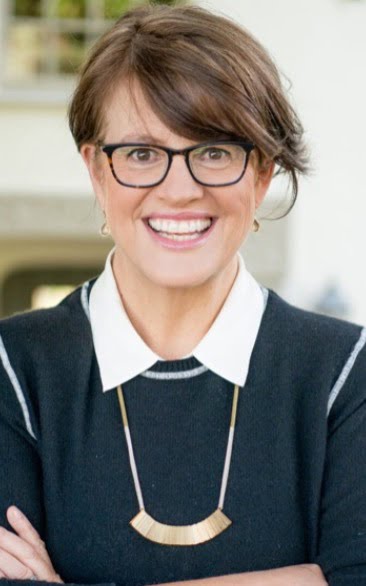

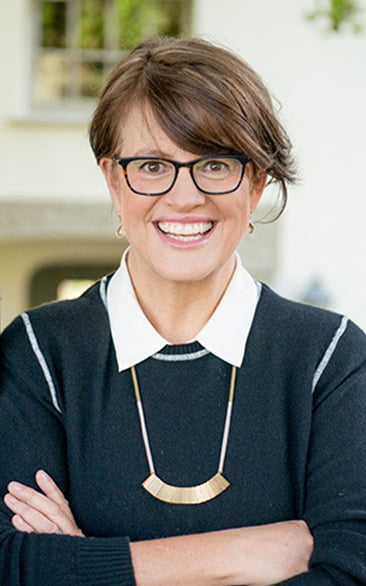
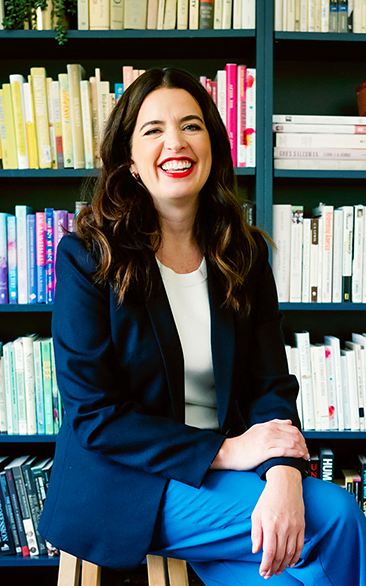










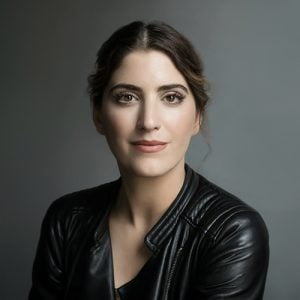
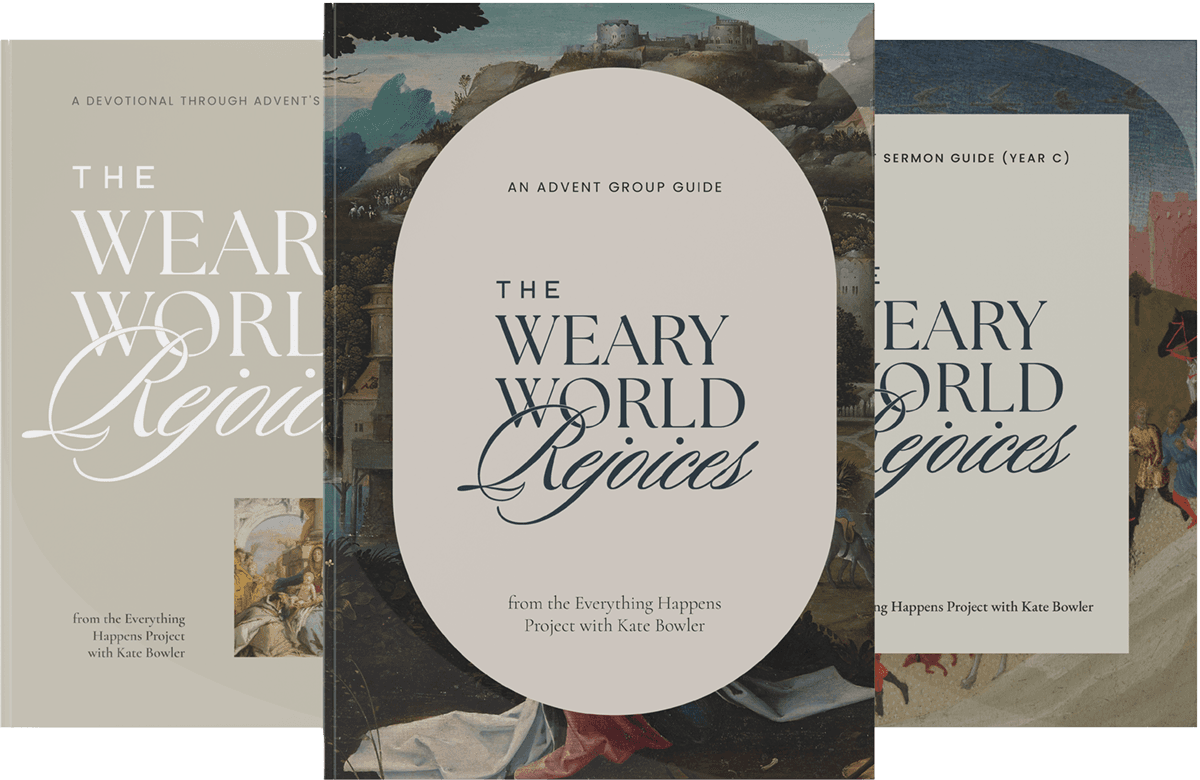
Leave a Reply